Franketienne - Ready to Burst
Здесь есть возможность читать онлайн «Franketienne - Ready to Burst» весь текст электронной книги совершенно бесплатно (целиком полную версию без сокращений). В некоторых случаях можно слушать аудио, скачать через торрент в формате fb2 и присутствует краткое содержание. Год выпуска: 2014, Издательство: Archipelago, Жанр: Современная проза, на английском языке. Описание произведения, (предисловие) а так же отзывы посетителей доступны на портале библиотеки ЛибКат.
- Название:Ready to Burst
- Автор:
- Издательство:Archipelago
- Жанр:
- Год:2014
- ISBN:нет данных
- Рейтинг книги:3 / 5. Голосов: 1
-
Избранное:Добавить в избранное
- Отзывы:
-
Ваша оценка:
- 60
- 1
- 2
- 3
- 4
- 5
Ready to Burst: краткое содержание, описание и аннотация
Предлагаем к чтению аннотацию, описание, краткое содержание или предисловие (зависит от того, что написал сам автор книги «Ready to Burst»). Если вы не нашли необходимую информацию о книге — напишите в комментариях, мы постараемся отыскать её.
Ready to Burst
The New York Times
Ready to Burst — читать онлайн бесплатно полную книгу (весь текст) целиком
Ниже представлен текст книги, разбитый по страницам. Система сохранения места последней прочитанной страницы, позволяет с удобством читать онлайн бесплатно книгу «Ready to Burst», без необходимости каждый раз заново искать на чём Вы остановились. Поставьте закладку, и сможете в любой момент перейти на страницу, на которой закончили чтение.
Интервал:
Закладка:
— Obviously. The writing process is the work. You might say it’s equal in density and scientific weight to the literary work. That’s why I’m against writing that’s presumptuously neutral and objective, and against the unoriginal. As to the formal, it’s equally inseparable from the whole of the work. It neither precedes nor comes after it. It is during. Throughout. From one end to the other. It is neither an envelope nor a garment. It’s a certain expansion of creation within a given space and at a given time. As such, it would be fundamentally artificial to pose the old question of form and content. The traditional approach that separates matter from spirit. That would amount to imagining a prefabricated model. Exhibited in a store window. However beautiful, it’s being worn by a wooden, rubber, or plastic mannequin. Without life.
— In this, you’ve opposed yourself to anything that seems too normal, too traditional … huh! I suppose you could say, anything too classic.
— A bit of that, yes. For example, for the Spiralist novel, style would play the role of barometric register. Endowed with infinite variability. Capable of indicating the most unexpected atmospheric variations. From that point on, the word attains its greatest autonomy. Inflated with meanings. Swollen with allusions. Amplified by the cross-references it implies. The word, freed of the tutelage of the sentence, gains in depth and breadth. And what’s more, it gives the impression of speed. A facility of acceleration. The word must fully enjoy its associative virtue. Inserted with precision into a sentence, the word becomes a sort of slave and thus loses its nerve, its lifeblood. Often, in a work nourished by the imaginary, the transparent amounts to a reductive element, an impoverishing factor. A narrow corset that suffocates fiction. The word, lacking the necessary space, atrophies. In desiring to tame the word, even the most well-constructed sentence turns it into a dead sign, because it’s reduced to a single meaning. Whatever the word, it’s always emptier in the middle of a sentence than it seems to be in reality. But when left to roam on its own, written or spoken, the simplest word acquires the richness of the swinging single with a world of partners to choose from. Whereas, in the context of a sentence, it once again becomes the pallid spouse stuck in the heart of a family with the mother of his children hanging on. Thus it often happens that I enclose a single word between two periods, so as to make it new, more powerful. Faster. More evocative. Richer. It’s a new kind of sentence. Created with the help of a lexeme that plays the strange role of the un-stable kernel, perpetually popping. I call this an undulatory sentence. Like a stone thrown onto the surface of a lake, it sets off interior waves that make innumerable connections with the lived experience of the reader or the listener. It is the very basis of the Spiralist language.
— Paulin, I predict some pretty serious outcry against these concepts of yours — you’ll be accused of hermeticism. Or of madness. Even more so because they give off a strong odor of sulfur.
— Not a big deal. I won’t die from whatever reception I get. Time is on my side. That’s good enough for me. I own my dissidence.
— So you’ll stick to your guns, despite everything.
— Yes. Come hell or high water. I’m betting everything on the Spiralist aesthetic. It could help resolve most of the problems in art. Particularly that of language.
— Okay, Paulin, so you’re talking about the crisis of language that’s facing contemporary literature.
— Of course, Raynand. It’s a part of the more general crisis.
— Strictly speaking, how does this crisis appear in the literary realm?
— Through a certain inadequacy … a phase shift.
— Paulin, I just don’t know what you mean by that.
— I’ll explain. Certain words. Certain expressions. As a result of being brooded over. On everyone’s lips. On everybody’s tongues. Soaked in drool. They end up being veritably eroded, left with nothing more to say. Having become insipid flakes of sawdust that pass ridiculously from one mouth to the next. Empty speak. The preferred style of whores and demagogues. Inflationist and idiotically anecdotal writing. These days, more than ever before, we’re raising the question of language. Tragic. Painful. Faced with intellectual consciousness. How can the distance between speech and gesture — between word and act — be eliminated, or at the very least reduced? How can the dichotomy that so often affects speech and action — positing one against the other — be resolved? In my humble opinion, Spiralist language — endowed with mobility, capable by its functionality of suggesting an ambience, of sensing the temperature — could, by dynamiting intuition, offer a chance to avoid the trap of figurative sterility. It’s time to liberate literature from the dictatorship of dictionaries and grammar books.
— You’re not worried that the spiral could degenerate into a banal circle that would end up distancing you from reality?
— Raynand, allow me to speak to you frankly. The world we live in is full of problems. My work must bear witness to this era. If blood is the price to pay, I’ll be careful, yes. But I’ll never give in. I’m disgusted by lame heroes. That being said, art mustn’t be confused with exhibitionism. It’s got to be entirely distinct from the croaking of frogs and the yapping of jackals.
— Paulin, would you permit me to ask a slightly indiscreet question?
— No objection. Go ahead.
— How many pages will this novel end up being?
— I don’t know exactly yet. But what I’m sure about is that it won’t be more than three hundred pages long. And I’m going to stick to that.
— Why is that?
— Because in our time, I find that those novels that go on and on are irritating and are only ever read superficially, and by a limited public. Literature is already dying. Supplanted by the sonorous and visual universe of cinema, which has stolen the strongest part of its voice. Moreover, its audience shouldn’t be hobbled; that would only accelerate its horrifying and tragic death throes. Filmic images and sound waves achieve the miracle of not boring the public by transmitting the message within a limited time and in a relaxed atmosphere. Of gregarious communion. And tomorrow, when man will have put in place numerous relay stations on the routes of rocket ships, like it or not, nothing will escape the magic of telecommunication. Our age doesn’t lend itself to reading literary works, boring in their too often useless length. We no longer live in the century of the wig-wearing, stay-at-home salonists who wall themselves up at a remove from the swirl of humanity. Between the fatigue of the night before and that of the day after, the worker, the technician, artisans, the laboring classes only have limited time — if they have any at all — to read printed characters. And even the unemployed are preoccupied with the more urgent problem of dinner. And so, it’s a question of stating things quickly. Without uselessly dragging out the dialogue. Without encroaching on the schedule. In this world of speed, where events unfold at a dizzying pace, faster is better. Otherwise, the book’s days are numbered and its adventure hurtles toward the point of collapse and dissolution. In this world so fabulously turned upside down by first-rate technology, where any sense of balance has become fleeting, the writer risks becoming outmoded, lacking the ability to adapt. All this explains why Spiralism is the most appropriate vision for this cosmic whirlpool.
— When will you be able to finish your novel?
— I’d like to be able to finish within the next six months. Unfortunately, I only write at night … when the interior demon of creativity roars. Aside from this handicap, I don’t write in a single stroke. I can’t produce cold. Whirlwinds. Vertigos. Storms. My life beats to the rhythm of turbulences. I am a Spiralist. And voluntarily I flee tranquillity, sterile and frigid. It brings with it the sign of death, the insignia of a mediocre life. I flee the monotony of repose and anything that resembles the straight and narrow. It’s not that I’m looking to be scandalous. But because life itself emerges from the cry of blood. Wayward child of pain. Of violence. And that, too, is Spiralism. And the entire universe has embarked on the infinite movement of the spiral.
Читать дальшеИнтервал:
Закладка:
Похожие книги на «Ready to Burst»
Представляем Вашему вниманию похожие книги на «Ready to Burst» списком для выбора. Мы отобрали схожую по названию и смыслу литературу в надежде предоставить читателям больше вариантов отыскать новые, интересные, ещё непрочитанные произведения.
Обсуждение, отзывы о книге «Ready to Burst» и просто собственные мнения читателей. Оставьте ваши комментарии, напишите, что Вы думаете о произведении, его смысле или главных героях. Укажите что конкретно понравилось, а что нет, и почему Вы так считаете.
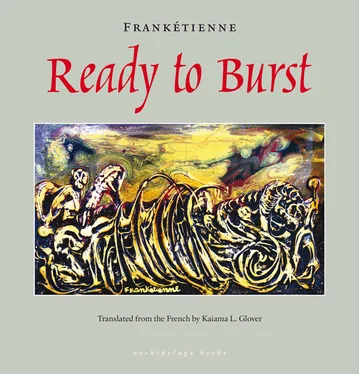
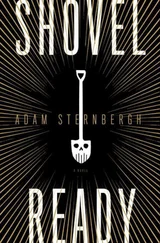
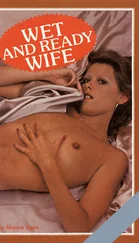
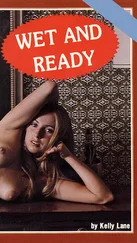
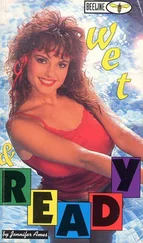
![Эрнест Клайн - Ready Player Two [calibre]](/books/438636/ernest-klajn-ready-player-two-calibre-thumb.webp)






